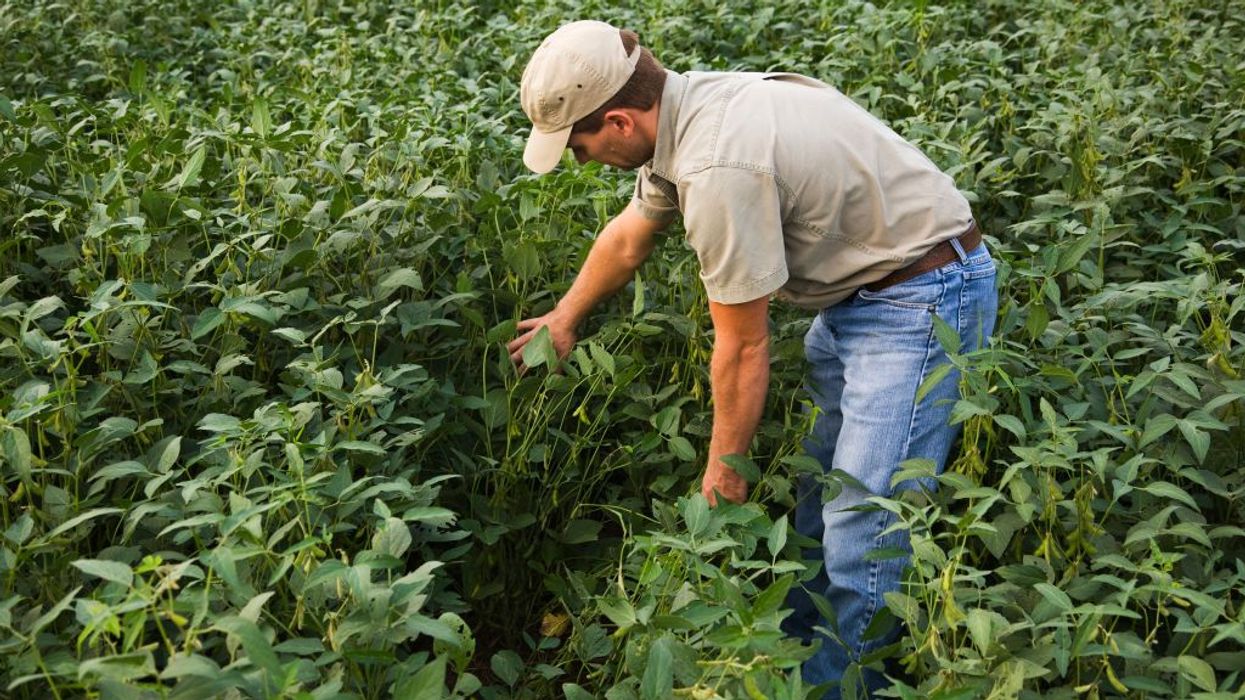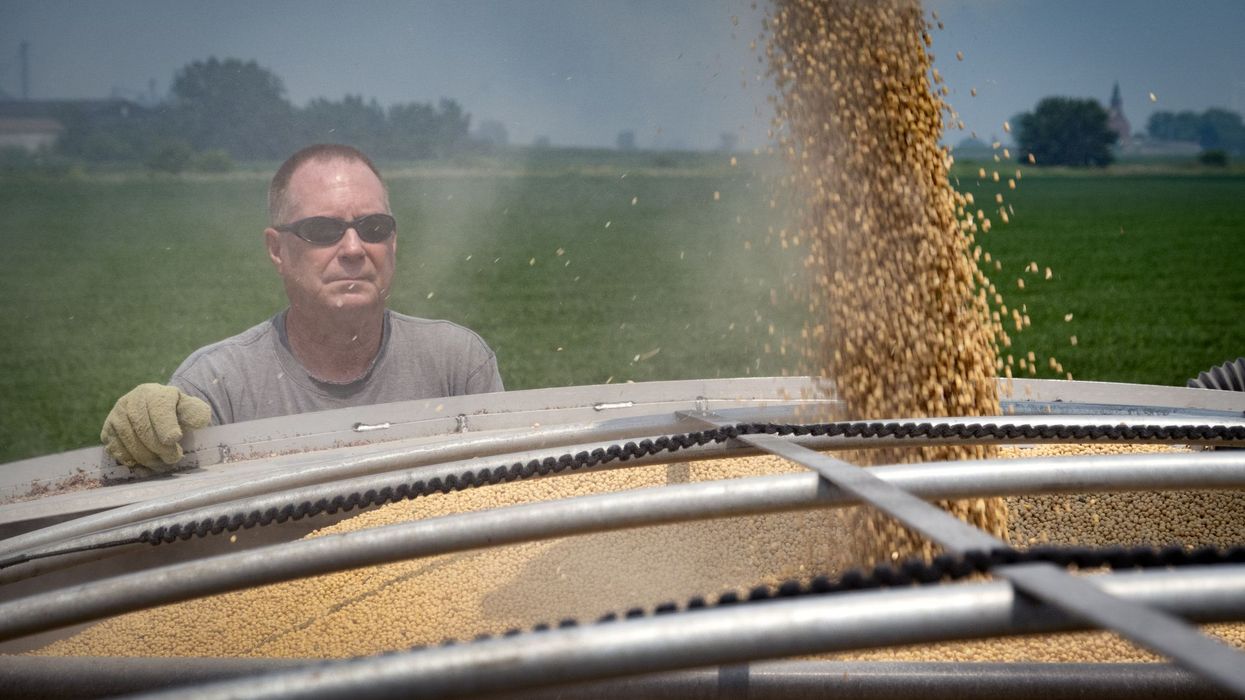"Trump’s plan to bail out farmers won’t even get agriculture communities back to even," the senator added. "They’re still paying more for fertilizer, equipment, and seeds, while grown-in-the-USA farm goods are facing more obstacles than ever in foreign markets. Don’t forget that all of this trade destruction and taxing was to raise money for Trump’s massive handouts to billionaires and the ultra-wealthy.”
Trump formally unveiled the relief plan Monday afternoon at a White House roundtable with top officials, lawmakers, and farmers of corn, soybeans, and other crops. Reuters reported that up to $11 billion of the funds are "meant for a newly designed Farmer Bridge Assistance program for row crop farmers hurt by trade disputes and higher costs." The other $1 billion is earmarked for commodities not covered by the program.
"Quite an admission that his policies have hurt Americans," economist Justin Wolfers wrote in response to the plan.
Farm Action, a farmer-led agricultural watchdog group, welcomed the relief package but said it's not enough to end suffering caused by "tariffs, soaring input costs, and years of volatile markets."
"The current problems facing our agriculture system have been decades in the making due to failed policy that prioritizes commodity crops for export, which only benefits global grain traders and meatpackers," said Joe Maxwell, Farm Action’s co-founder and chief strategy officer. "Without addressing the root causes of this issue, farmers will be left to continue relying on government assistance into the future. That is why Congress must take action and fix our failed subsidy system in the next farm bill."
Rebecca Wolf, senior food policy analyst at Food & Water Watch, said that "bailouts are a denigrating Band-Aid to farmers whom decades of misguided domestic policy have left vulnerable to trade wars."
"Trump’s tariff tantrum and belittling bailouts will deepen agricultural sector consolidation, funneling money to a powerful few corporations, while running farmers further into the ground," said Wolf. "If Trump is serious about helping farmers, lowering sector consolidation and dropping food prices, he needs to look in the mirror. Chaotic tariff tantrums are no way to run farm policy. US farmers need fair prices, regional food markets, and policies that reward sustainable, humane production models—not trade wars.”
The $12 billion relief program comes after months of Trump tariffs and retaliatory actions by key nations—particularly China—that have amplified challenges facing US farmers, a key political constituency for the president.
Farmers and organizations representing them have been vocal in their criticism of Trump's tariffs and his proposed policy responses to the problems that the duties have intensified. As the Washington Post summarized:
Earlier this spring, Trump’s tariffs on China prompted the country to halt purchases of US soybeans. Then, the president offered a $20 billion bailout to Argentina, whose soybean crop sales to China have replaced those from US farmers. Later, Trump announced that the United States would buy beef from Argentina to bring down prices for US consumers, opening a new rift between Trump and cattle ranchers.
The new assistance package is particularly aimed at helping soybean farmers, who have seen a precipitous drop in sales this year, leaving them with extra supply, as the price of soybeans fell.
In October, Illinois soybean producer John Bartman said in a message to the Trump administration that "we don't want a bailout, we want a market."
"Bailouts don't work. Bailouts are band-aids," Bartman added. "What Trump is doing is destroying our markets, and when those markets disappear, we're not gonna get them back."
Ryan Mulholland and Mark Haggerty of the Center for American Progress echoed that sentiment in an analysis last month, noting that "writing a check to farmers helps in the short term, but even in the most optimistic scenario, input costs are likely to remain high, demand volatile, the climate ever-changing, and corporate consolidation and investor ownership of land firmly entrenched."
"Planning for next year’s planting season will be extremely difficult, but without a comprehensive plan to make farming a more sustainable, more prosperous enterprise, planning in subsequent years likely will not be any easier," they added. "President Trump’s 'solution' is to simply pay off farmers. Farmers want trade, not aid. And they want government policy that supports farmers and the communities where they live over the long term."




